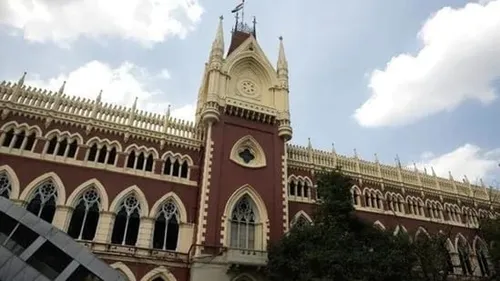Introduction
The Calcutta High Court issued notices to all concerned parties regarding the plea filed by the BJP candidate from Arambagh. The candidate challenged the election result, citing irregularities and malpractices during the voting process. The court’s decision to issue notices signifies the seriousness of the allegations and the potential impact on the election’s outcome.
Table of Contents
Background of the Case
The BJP candidate from Arambagh contested the recent West Bengal Assembly elections. After the results declared a win for the opposing candidate, the BJP nominee raised concerns about the integrity of the election process. Allegations included voter intimidation, booth capturing, and tampering with electronic voting machines (EVMs). The candidate filed a petition in the Calcutta High Court, seeking a thorough investigation into the alleged malpractices.
Court’s Action
In response to the petition, the Calcutta High Court issued notices to all involved parties, including the winning candidate, the Election Commission of India (ECI), and other relevant authorities. The court directed them to submit their responses to the allegations. The court’s notice indicates that the case requires careful examination of the presented evidence and arguments.
Allegations of Malpractices
The petitioner detailed several instances of alleged malpractices during the election. Voters in Arambagh faced threats and intimidation from rival party workers. Reports of booth capturing in multiple locations surfaced, raising doubts about the fairness of the electoral process. The petitioner also highlighted suspicious activities concerning EVMs, claiming that some machines were tampered with to favor the winning candidate.
Response from the Election Commission
The Election Commission, responsible for ensuring free and fair elections, is expected to respond to the allegations in the upcoming hearings. The Commission had previously stated that the election process adhered to all established guidelines and regulations. However, the court’s notice requires the Commission to address the specific concerns raised by the BJP candidate.
Legal Implications
The court’s decision to issue notices indicates that the case holds significant legal weight. If the court finds merit in the allegations, it could order re-election in Arambagh or take other appropriate legal actions. This could set a precedent for how election-related disputes are handled in the future, especially in regions with reported irregularities.
Political Repercussions
The plea filed by the BJP candidate could have far-reaching political implications. If the court rules in favor of the petitioner, it might lead to a re-election in Arambagh, potentially altering the balance of power in the West Bengal Assembly. Additionally, the case could influence public perception of the electoral process in the state and spark debates on the need for electoral reforms.
Future Course of Action
The next steps in the legal process will involve the submission of responses by all concerned parties. The court will then examine the evidence and arguments presented by both sides. Depending on the findings, the court could either dismiss the petition or order further investigation into the alleged malpractices. The outcome of this case will be closely watched by political analysts and the public alike.
Arambagh
The court’s decision to issue notices indicates that the case holds significant legal weight. If the court finds merit in the allegations, it could order re-election in Arambagh or take other appropriate legal actions. This could set a precedent for how election-related disputes are handled in the future, especially in regions with reported irregularities.
Conclusion
The Calcutta High Court’s decision to issue notices on the plea by the BJP’s Arambagh candidate underscores the importance of maintaining the integrity of the electoral process. The case highlights the need for vigilance in ensuring that elections are conducted fairly and without any undue influence. As the legal proceedings unfold, the case will likely have significant implications for both the political landscape of West Bengal and the broader electoral framework in India.








